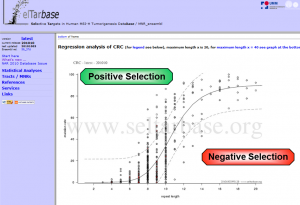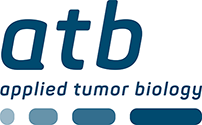MSI Target Genes: drivers of MSI carcinogenesis
The MSI phenotype represents a double-edged sword for MMR-deficient (dMMR) tumor cells. These mutator cells can accelerate the occurrence of frameshift mutations in coding microsatellites of specific MSI target genes thereby gaining a growth advantage but at the expense of a large number of frameshift peptide neoantigens and vulnerability to immune attack. In order to understand how dMMR tumor cells cope with this mutational challenge it is important to identify bona fide MSI target genes and how they contribute to the biology of dMMR tumors.
Based on dMMR tumor mutation data generated by us and others we have established a statistical model that enables the prediction of selected MSI target genes (www.seltarbase.org). For some of these predicted targets we have determined the mutation profile in dMMR tumors of different organs and at different stages. More recently, we have focussed on the biological consequences of frameshift mutations with emphasis on two members of the TGFß signaling pathways considered to be drivers of MSI colorectal tumorigenesis. As a long term goal we seek to understand how altered TGFß signaling modifies the glyco/phospho/proteome and metabolome of dMMR tumor cells and contributes to MSI tumorigenesis.
Dr. Stefan Wörner, University Heidelberg, Germany

Involved researchers



